Filter by

Ages and Abilities: The Stages of Childhood and their Social Recognition in P…
Ages and Abilities explores social responses to childhood stages from the late Neolithic to Classical Antiquity in Central Europe and the Mediterranean and includes cross-cultural comparison to expand the theoretical and methodological framework. By comparing osteological and archaeological evidence, as well as integrating images and texts, authors consider whether childhood age classes are arc…
- Edition
- -
- ISBN/ISSN
- 9781789697698
- Collation
- -
- Series Title
- -
- Call Number
- -
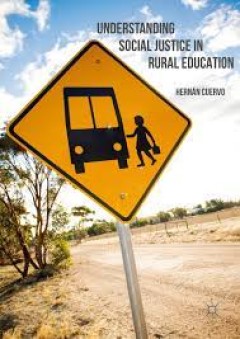
Understanding Social Justice in Rural Education
This book explores what social justice looks like for rural schools in Australia. The author challenges the consensus that sees the distribution of resources as the panacea for the myriad challenges faced by rural schools and argues that the solution to inequality and injustice in rural settings has to take into account other important dimensions of social justice such as recognition and associ…
- Edition
- -
- ISBN/ISSN
- 978-1-137-50515-6
- Collation
- -
- Series Title
- -
- Call Number
- -

Group-Centered Prevention in Mental Health Theory, Training, and Practice
This book presents the concept of group-centered prevention and provides explanations and exercises for learning the method and teaching it to others. Detailed studies offer evidence for the continuing importance of prevention in mental well-being and distinguishes group-centered prevention from other group interventions by its ability to resolve incipient mental health issues and emotional pro…
- Edition
- Ed. 1
- ISBN/ISSN
- 978-3-319-19101-0
- Collation
- XVII, 165
- Series Title
- -
- Call Number
- -
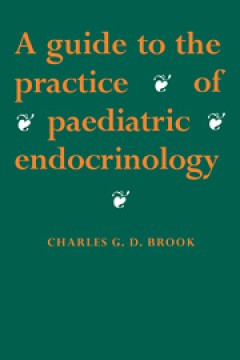
A Guide to the Practice of Paediatric Endocrinology
This concise and practical book is designed for paediatricians and endocrinologists, trained or in training, who see children with endocrine problems. All the endocrine glands are covered, and the author has distilled his vast experience and expertise in this area to provide hard-hitting, practical advice on the diagnosis, management and treatment of the main endocrine disorders. It is not a he…
- Edition
- -
- ISBN/ISSN
- 9780511526862
- Collation
- -
- Series Title
- -
- Call Number
- -
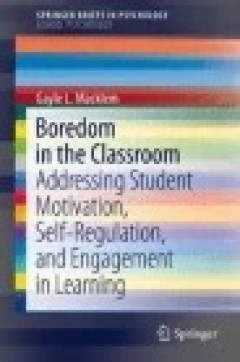
Boredom in the Classroom: Addressing Student Motivation, Self-Regulation, and…
This brief synthesizes current findings on the many aspects of chronic student boredom, its relationship with negative academic, emotional, and health outcomes, and what professionals can do to best address it. Citing the complexity of this common student emotion, the author spotlights boredom susceptibility during the critical K-12 years. The brief analyzes cognitive and emotional attributes o…
- Edition
- 1
- ISBN/ISSN
- 978-3-319-13120-7
- Collation
- VII, 88
- Series Title
- SpringerBriefs in Psychology
- Call Number
- 150
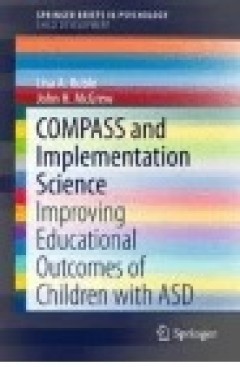
COMPASS and Implementation Science
This Brief examines COMPASS – the Collaborative Model for Promoting Competence and Success – a consultation-based intervention specialized for children with Autism Spectrum Disorder (ASD). Based on the Evidence-Based Practices in Psychology (EBPP) framework, the volume describes the processes that strengthen the expert support relationships between consultant and teacher (i.e., implementati…
- Edition
- 1
- ISBN/ISSN
- 978-3-319-18554-5
- Collation
- XIII, 101
- Series Title
- SpringerBriefs in Psychology
- Call Number
- 100
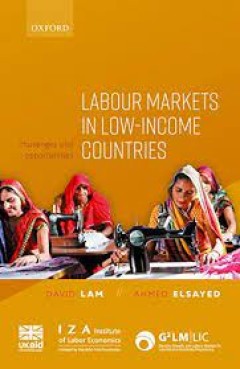
Labour Markets in Low-Income Countries Challenges and Opportunities
Employment and job creation are key components in achieving economic growth and sustainable development, particularly in low-income countries. The growing size of the working-age population in many developing regions underscores the need to further strengthen labour market structures in the world’s poorest countries. Despite the importance of studying emerging labour markets, and investigatin…
- Edition
- -
- ISBN/ISSN
- 9780192897107
- Collation
- -
- Series Title
- -
- Call Number
- -

Experimental Studies in Learning Technology and Child–Computer Interaction
This book is about the ways in which experiments can be employed in the context of research on learning technologies and child–computer interaction (CCI). It is directed at researchers, supporting them to employ experimental studies while increasing their quality and rigor. The book provides a complete and comprehensive description on how to design, implement, and report experiments, with a f…
- Edition
- -
- ISBN/ISSN
- 9783031143502
- Collation
- -
- Series Title
- -
- Call Number
- -

Informed Consent in Predictive Genetic Testing A Revised Model
This important book proposes revising the current informed consent protocol for predictive genetic testing to reflect the trend toward patient-centered medicine. Emphasizing the predictive aspect of testing, the author analyzes the state of informed consent procedure in terms of three components: comprehension of risk assessment, disclosure to select appropriate treatment, and voluntariness. Th…
- Edition
- -
- ISBN/ISSN
- 978-3-319-17415-0
- Collation
- VII, 232
- Series Title
- -
- Call Number
- 618 INF
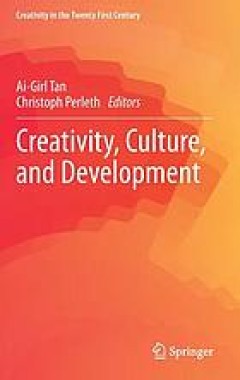
Creativity, Culture, and Development
This volume presents a collection of writings on the relations among creativity, culture and development. The editors invited 2like-minded3 researchers of creativity from around the world to share their respective notions of creativity. Given that human creativity is a potential that can and should be nurtured in the course of lifespan development and across all cultural backgrounds, the volume…
- Edition
- 1
- ISBN/ISSN
- 9789812876362
- Collation
- xviii, 275 pages
- Series Title
- Creativity in the Twenty First Century
- Call Number
- 305.231
 Computer Science, Information & General Works
Computer Science, Information & General Works  Philosophy & Psychology
Philosophy & Psychology  Religion
Religion  Social Sciences
Social Sciences  Language
Language  Pure Science
Pure Science  Applied Sciences
Applied Sciences  Art & Recreation
Art & Recreation  Literature
Literature  History & Geography
History & Geography